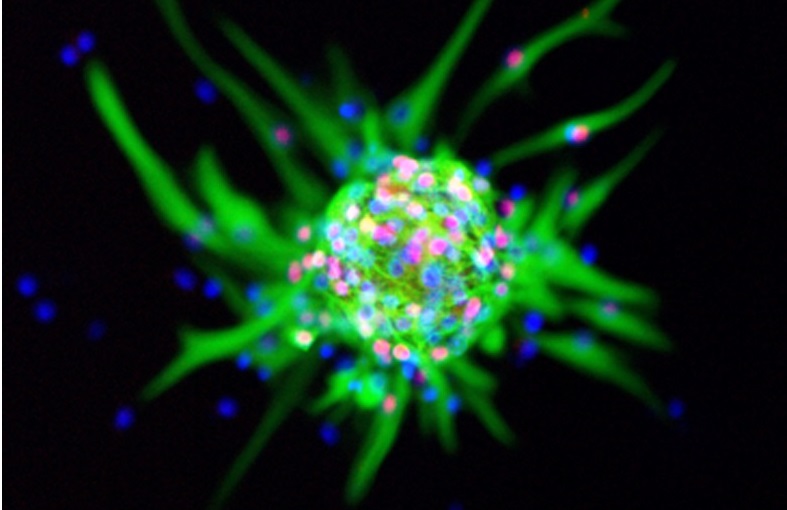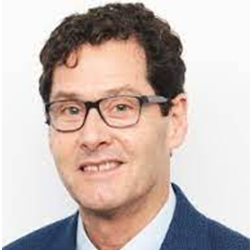Glial cell development and the brain’s response to injury
Laboratory: Cambridge Stem Cell Institute, Jeffrey Cheah Biomedical Centre
Departmental Affiliation: Paediatrics
Biography
David Rowitch is a pediatrician (neonatology) and developmental neuroscientist. He is Professor and Head of Department of Paediatrics at the University of Cambridge (UK), and Adjunct Professor of Pediatrics at University of California San Francisco. Originally from California, he obtained his MD from University of California Los Angeles and PhD (biochemistry) from the University of Cambridge. Rowitch became a Howard Hughes Medical Institute Investigator in 2007 and Wellcome Trust Senior Investigator in 2016. He was appointed to the National Advisory Council for Child Health and Development (USA) in 2020.
Professor Rowitch’s laboratory in the Wellcome-MRC Cambridge Stem Cell Institute investigates genetic factors that determine development and diversity of glia, which comprise 90% of cells in the human brain. His laboratory has established how embryonic central nervous patterning specifies myelinating oligodendrocytes through essential functions of Olig2, a study that helped initiate era of developmental genetics in glial biology, and how astrocyte functional diversification is critical for support of neural circuits in spinal cord. He has applied principles of developmental neuroscience to better understand human neonatal brain development as well as white matter injury in premature infants, multiple sclerosis and leukodystrophy.
As a physician-scientist, Professor Rowitch’s interest focuses on functional genomic technologies to better diagnose and treat rare neurogenetic disorders in children. At UCSF, Rowitch helped establish the ‘Neuro-NICU’ and he led a Phase I first-in-man clinical study of neural stem cell transplant in boys with Pelizaeus-Merzbacher Disease. He is academic lead for the new Cambridge Children’s Hospital, researching origins of paediatric physical and mental conditions and preventive interventions within the UK National Health Service.
His research in the field of developmental neurobiology and biomedicine has earned him numerous awards, including election as Fellow of the Academy Medical Sciences (UK) in 2018 and Fellow of the Royal Society in 2021.
Funding
Wellcome Trust, Rosetrees Trust, Cambridge Biomedical Research Centre, Adelson Medical Foundation, European Research Council
Image from Rowitch lab taken by Vivi Heine in 2008 shows a collection neural stem cells stained with nestin (green), and Olig2 (red), a marker of glial progenitors. Such cell collections can "self-organize" to generate specialized cell progeny without external instructions
Research
- Diversity and function of astrocytes
- Myelination in normal development
- White matter diseases: Multiple sclerosis and leukodystrophy
- Spatial transcriptomics of mouse and human brain
- Glioma – microenvironmental interactions
Plain English



